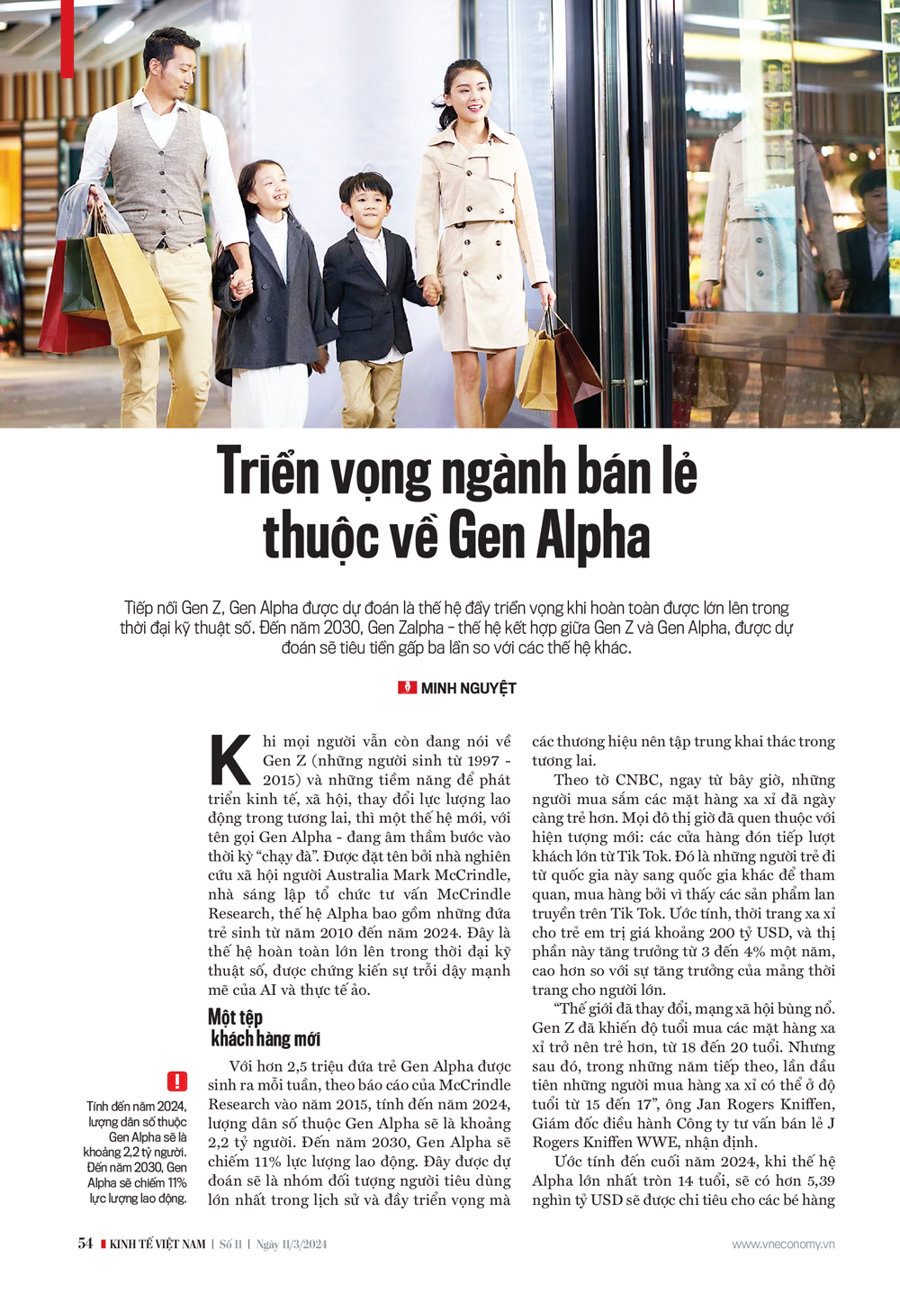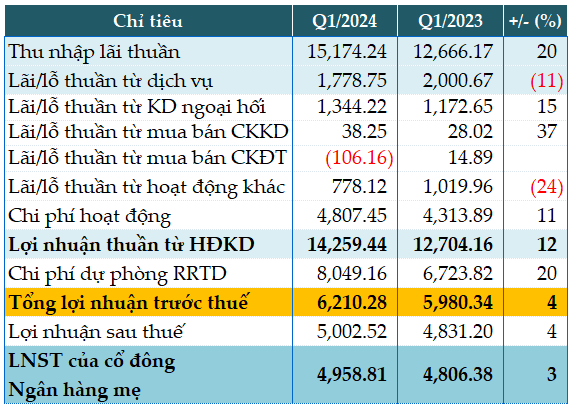While everyone is still talking about Gen Z (those born from 1997 – 2015) and the potential for economic and societal growth, changing the workforce in the future, a new generation, called Gen Alpha – is quietly entering the “running” phase. Named by Australian social researcher Mark McCrindle, founder of McCrindle Research, Gen Alpha includes children born from 2010 to 2024. This is a generation that has grown up entirely in the digital age, witnessing the strong rise of AI and virtual reality.
A NEW CUSTOMER FILE
With more than 2.5 million Gen Alpha children born every week, according to a McCrindle Research report in 2015, by 2024, the Gen Alpha population will be about 2.2 billion. By 2030, Gen Alpha will account for 11% of the workforce. It is predicted to be the largest consumer group in history and a promising group that brands should focus on exploiting in the future.
According to CNBC, even now, luxury shoppers are getting younger. Every city is now familiar with a new phenomenon: stores receiving large traffic from TikTok. These are young people traveling from one country to another to visit and shop because they see products trending on TikTok. An estimated $200 billion luxury fashion for children and this sector are growing 3 to 4% annually, higher than the growth of the adult fashion sector.
“The world has changed, social media has exploded. Gen Z has made the age of luxury shopping even younger, 18 to 20 years old. But then, in the following years, luxury shoppers could be at the age of 15 to 17,” said Jan Rogers Kniffen, CEO of J Rogers Kniffen WWE retail consulting firm.
By the end of 2024, when the largest Gen Alpha is 14 years old, over $5.39 trillion will be spent on children’s products worldwide on an annual basis. That figure “defeats” the purchasing power of Millennials and Gen Z, predicted at around $2.5 trillion and $3 trillion, respectively, according to a Harvard Business Review study.

To keep up with a generation growing up with technology, buying expensive items like designer shoes and bags online has become easier than ever. Luxury brands have embraced online selling, along with a host of used luxury resale websites. Bain & Company also stated that web 3.0 technology, including metaverse and NFT, will help increase luxury sales in the future and make these products more accessible to younger users.
In the beauty industry, many Gen Alpha children have become experts in toner, serum, moisturizers, and sunscreens. In an effort to imitate the Gen Z influencers they see on social media, some even have a better understanding of ingredients and beauty products than adults. In this year’s important holiday shopping season, the passion for skincare of Gen Alpha is expected to boost sales in the US. Both Bubble and e.l.f. – two brands that have taken advantage of TikTok to attract young consumers – also said they have high expectations for year-end revenue from this new customer file.
Similarly, according to the study “Understanding Generation Alpha,” in the US, 81% of children born to this generation influence their parents’ technology usage habits; 27% of parents have to consult their children before buying electronic items (such as TVs, tablets, phones, laptops…). This results in a new consequence that there has never been any generation before: the thoughts and words of Gen Alpha are more valued in family decisions, although they still depend on the economy.
This is one reason why experts encourage brands not to focus too much on trying to attract children but instead try to make products more family-friendly. “Because Gen Alpha is too young, marketers have to consider attracting this customer file without making their parents cringe,” said Jacee Scoular, Senior Director of Brand Marketing at Hollister. This fashion retailer is not the only business hiring Gen Z staff to take over communication. Toy brand Nerf recently hired a 22-year-old “TikTok director” to handle marketing campaigns…
https://postenp.phaha.vn/chi-tiet-toa-soan/tap-chi-kinh-te-viet-nam










































